You’re reading the free version of The Morning Dispatch. Consider joining as a paid member to get full access to our news, analysis, community comments, and live events.
Happy Thursday! We always like to provide on-the-ground reporting here at TMD, so we would like to officially confirm the existence of a heat wave in the Washington, D.C., area. If it goes on much longer, The Dispatch will be moving its headquarters to Alaska.
Quick Hits: Today’s Top Stories
- President Donald Trump said Wednesday that the U.S. would hold talks with Iran next week to discuss a potential nuclear deal. Iran has yet to confirm the talks, but if they take place, they would be the first in more than a month. However, Trump also downplayed the importance of reaching a deal with Tehran. “We may sign an agreement,” he said. “To me, I don’t think it’s that necessary.” The reduced urgency to resume negotiations came as CIA Director John Ratcliffe said that his agency had obtained “credible evidence” that the U.S. strikes on three sites in Iran had “severely damaged” the country’s nuclear program. Israel reported similar findings, saying that its intelligence services believe that the nuclear program has been set back “many years,” contradicting a leaked preliminary Defense Intelligence Agency report stating that the U.S. operation set the program back just months. Defense Secretary Pete Hegseth said Wednesday that the FBI was conducting a probe into how the intelligence assessment became public.
- Trump announced Wednesday that he would consider sending Patriot air defense systems to Ukraine, while still noting that the systems are in short supply. During a NATO summit in The Hague, Trump met with Ukrainian President Volodymyr Zelensky for nearly an hour—a reunion that Zelensky described as “long and substantive.” The Ukrainian president said he reiterated his willingness to buy more U.S. weapons while also raising other possible ventures, including joint U.S.-Ukraine drone production. Despite the two leaders’ tumultuous relationship, Trump struck a softer tone toward Zelensky, saying that he “couldn’t have been nicer.”
- Iranian authorities on Wednesday executed three people accused of spying for the Mossad, Israel’s intelligence agency, and detained hundreds of others for alleged espionage. The arrests stoked fear of a broader crackdown by the Islamic Republic in the aftermath of Iran’s war with Israel. Iranian media reported that more than 700 “Israeli mercenaries” had been arrested in less than two weeks. The executions came on the same day that the chief of staff of the Israel Defense Forces confirmed that Israeli “ground commando units” operated deep inside Iran and granted Israel “operational freedom of action” during the conflict between the two countries.
- Anti-government protests left 16 people dead and hundreds injured in Kenya on Wednesday as demonstrators clashed with police. Protesters cited government corruption and police brutality as the motivation for the demonstrations against President William Ruto’s government. This round of protests was timed to coincide with the one-year anniversary of demonstrations against a tax bill, which ended with protesters storming the parliament and the deaths of more than 60 people.
- The National Institutes of Health on Tuesday ordered the pause of additional medical research grant cancellations. The move—announced in an internal memo sent to staff on Tuesday—came after a federal judge in Massachusetts ruled last week that some of the cancellations targeting grants over their purported support for diversity, equity, and inclusion programs were “void and illegal,” arguing that the Trump administration had engaged in discrimination. It is not yet clear how long the pause will last.
- New members of a vaccine advisory panel chosen by Health and Human Services Secretary Robert F. Kennedy Jr. on Wednesday announced plans to review the federal childhood vaccination schedule. The panel’s chair announced that the group would be evaluating the “cumulative effects” of the current childhood vaccine schedule, the hepatitis B vaccine, and the combination measles, mumps, rubella, and chickenpox vaccine. The move comes after Kennedy fired all 17 members of the panel and replaced them with his own selections, choosing two members critical of vaccines to chair the group.
Fluke or Bellwether?

Zohran Mamdani, a 33-year-old democratic socialist state assemblyman, cleared perhaps his most difficult hurdle on the way to New York City’s mayorship on Tuesday, securing 43.5 percent of first-choice votes to former Gov. Andrew Cuomo’s 36.4 percent in the city’s Democratic primary election. Cuomo conceded the race as votes trickled in. “Tonight is his night. He deserved it,” he told supporters Tuesday night. “He won.”
Mamdani will advance to the general election to take on controversy-saddled Mayor Eric Adams, running as an independent, and Republican talk show host Curtis Sliwa come November. He may also find himself once again facing off against Cuomo, who had previously insisted that he planned to be on the ticket despite the primary results but indicated Tuesday that he would put in “some thought” before determining his next move.
Observers across the country are now asking whether Mamdani’s upset in New York is a local anomaly or a warning shot. Backed by the progressive left’s most prominent figures and opposed by billionaires and party elders, analysts say Mamdani’s candidacy may offer a test case for Democratic politics in the post-Joe Biden era: ideologically bolder, digitally nimbler, and far more willing to challenge its own center.
For months, pollsters projected that Cuomo would secure a comfortable victory. Mamdani had only spent four years in Albany at the state assembly and was largely unknown to New York and the nation prior to announcing his run. Only three of his 20-plus proposed bills were put into law, and with limited effect. But according to some Democratic strategists, it was Mamdani’s youth, charisma, and energy that made him a serious opponent for a 67-year-old Cuomo keen to reenter New York politics after sexual harassment allegations caused him to step down as governor in 2021.
“The media will want there to be a competitive general, but I don’t think there will be,” Bradley Tusk, a New York-based political strategist, told TMD. “People are sick and tired of the Democratic establishment and Cuomo was a part of that. They were looking to reject it.”
The primary race began gaining national attention when the polls narrowed earlier this month: Last week, Marist’s final poll had Cuomo edging out Mamdani only after seven rounds of ranked-choice voting. And by June 23, Emerson’s poll—the last before Election Day—had Mamdani eking out the victory over Cuomo. “This wasn’t just new versus old,” a Democratic strategist told TMD, “but new versus old with baggage.”
The New York City Board of Elections is expected to announce the full results on July 1, which will be determined by ranked-choice voting. The system allows voters to list their top five candidates in order of preference. Officials remove the lowest vote-receiver until a candidate is lifted above 50 percent of the vote. But the controversial ranked-choice voting system, which pollsters before Tuesday’s primary said might give Mamdani an edge, proved “irrelevant,” according to Tusk, given that results were so clear that Cuomo conceded after the first round.
Mamdani carried the Brooklyn, Queens, and Manhattan boroughs in the early vote, while Cuomo took the Bronx and Staten Island. Mamdani appeared to perform well among young, college-educated white and Asian voters, while Cuomo picked up support in predominantly black and Orthodox Jewish communities.
Mamdani’s economic plan for New York City has drawn much attention: He ran on free buses, city-run grocery stores, rent freezes, and a $70 billion affordable housing project. The ambitious plan aims to build 200,000 “permanently affordable” housing units in the next decade and promises no “pointless delays” on construction of those units, according to Mamdani’s campaign website. “We have won because New Yorkers have stood up for a city they can afford,” Mamdani said during his victory speech Tuesday night. “A city where they can do more than just struggle.”
The city’s wealthy, who make up the foundation of its tax bracket, are less excited about the prospect of a Mayor Mamdani than the crowd he addressed: Cuomo’s best neighborhood in Manhattan was the affluent Upper East Side, where he secured 45 percent of the first round vote.
Billionaire John Catsimatidis, who runs the Manhattan-based Gristedes supermarket chain, threatened to close shop if Mamdani takes office. Former Mayor and billionaire Michael Bloomberg endorsed Cuomo and gave $8.3 million to Fix the City, the PAC responsible for anti-Mamdani attack ads. Many wealthy New Yorkers are threatening to flee to Florida—the Sunshine State’s Republican governor, Ron DeSantis, said Monday that a Mamdani victory would “see Palm Beach real estate go up another 20 percent.”
It was not just Mamdani’s economic plans that polarized voters, but also his social positions. Mamdani plans to create a Department of Community Safety and, in turn, defund the New York Police Department’s overtime budget and protest response units. Mamdani also supports expanding “gender-affirming care, making NYC an LGBTQIA+ sanctuary city, and creating the Office of LGBTQIA+ Affairs,” according to his campaign website.
As an undergraduate at Bowdoin College, Mamdani, himself a Muslim, co-founded the college’s Students for Justice in Palestine chapter. The self-described “anti-Zionist” has since defended the phrase “globalize the intifada”—which refers to a series of Palestinian uprisings in the late 1980s and early 2000s that together left more than 1,200 Israelis dead—and compared it to the Warsaw Ghetto Uprising against the Nazis, drawing criticism from the Anti-Defamation League, the U.S. Holocaust Museum, and fellow New York Democrats. Mamdani also said that, should Israeli Prime Minister Benjamin Netanyahu ever visit New York City during his tenure as mayor, he would order the leader’s arrest.
The hundreds of thousands of people “who voted for change and hoping for lower prices can’t be discounted,” Dane Strother, a veteran Democratic strategist, told TMD via email. “But Republicans will dance on these results.”
Jewish voters have made up an operative 16 percent of the electorate in past Democratic primaries. Although Cuomo made it a large part of his campaign to emphasize Mamdani’s anti-Israel sentiments—even saying that his opponent’s remarks “fuel murder”—the Jewish vote was split between Cuomo, Mamdani, and New York City Comptroller Brad Lander. Lander, the city’s highest-ranking Jewish elected official, gave Mamdani a cross-endorsement in the final weeks of the race.
Still, Mamdani’s past anti-Israel statements were top of mind for some voters, particularly given the recent scourge of left-wing violence on behalf of the Palestinian cause—including an April arson attack on Pennsylvania Gov. Josh Shapiro’s home, the murder of Israeli Embassy workers outside the Capital Jewish Museum in Washington, D.C., last month, and the firebombing of Jewish demonstrators in Boulder, Colorado. New Yorkers in particular have come face-to-face with the rising tide of anti-Zionist activism in recent years, including at Columbia University, where some anti-Israel demonstrations led to the takeover of school buildings and Jewish students felt pressured to disavow Israel to fit in with their progressive peers.
“I don’t like the idea of more populism and sloganeering and creating these feelings of community by excluding other people,” Ramon Maislen, who started a PAC encouraging New York Democrats to be more attentive to antisemitism, told TMD. “It’s depressing as a Jewish New Yorker to feel that you need to pass some loyalty test to be accepted.”
Tensions over the issue came to a head in April when Cuomo criticized Lander’s calls for divestment from Israel at a synagogue. Lander responded by cursing him in Yiddish before adding in English, “Andrew Cuomo doesn’t get to tell me how to be Jewish.”
“I don’t think it makes Jews any safer to be a political football,” Maislen added. “Both the left and the right have a lot of trouble seeing antisemitism within their own party.”
Many are already speculating about what Mamdani’s success might mean for the future of the Democratic Party in statewide or national elections, particularly amid growing intra-party divides. Mamdani received endorsements from many influential members of the progressive wing of the Democratic party, including Rep. Alexandria Ocasio-Cortez and Sen. Bernie Sanders, while Cuomo was backed by establishment Democrats like former President Bill Clinton.
“Mayor is an operational, non-partisan job. So if Zohran rises to the occasion, hires really talented people, lets them do their jobs, works with everyone, and he’s effective, then that really empowers AOC in 2028 to take on [Senate Minority Leader] Chuck [Schumer],” Tusk said. “If he’s a disaster, [Schumer] will use that as the argument against AOC. So I think her fate, in many ways, is tied up with [Mamdani], and I’m not sure if she’s happy with that or not, but that’s the die she cast.”
Other analysts have cautioned against overinterpreting the results of a city-wide election, arguing that New York City politics—however headline-grabbing—are still inherently local. “New York City is light years away from the politics of whoever’s going to win the nomination for president in 2028,” Joe Trippi, a Democratic pollster, told TMD. “You can go forth and project, but I don’t think it matters.”
Whether Mamdani is a fluke or a bellwether, the little-known lawmaker’s rapid rise was sure to generate plenty of attention.
“New York City primaries for mayor are never quiet affairs,” Lee Miringoff, director of the Marist University Institute for Public Opinion, told TMD. “That’s why Broadway is in New York City.”
Today’s Must-Read

Logic Trips Up the Trans Movement
Toeing the Company Line

This Is What Nonproliferation Looks Like
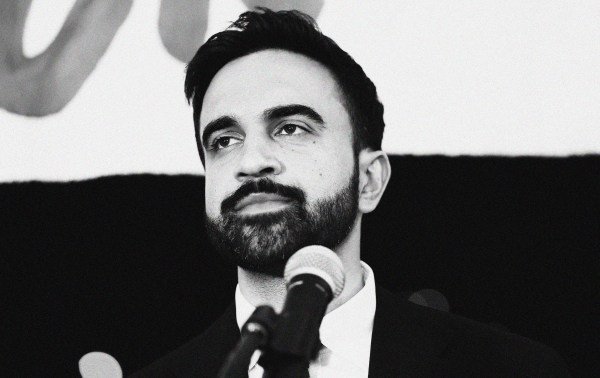
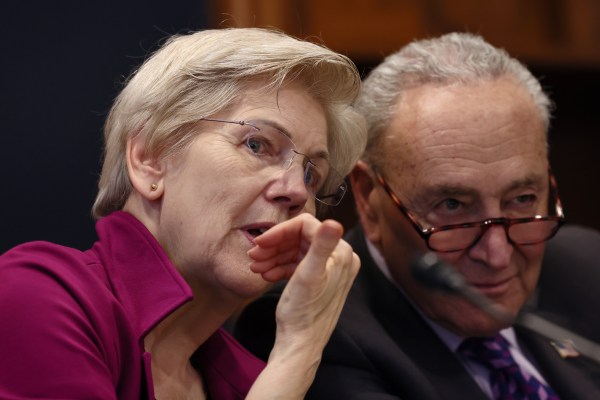
Trump’s Tariffs Have Democrats Sounding Like—Gasp!—Libertarians
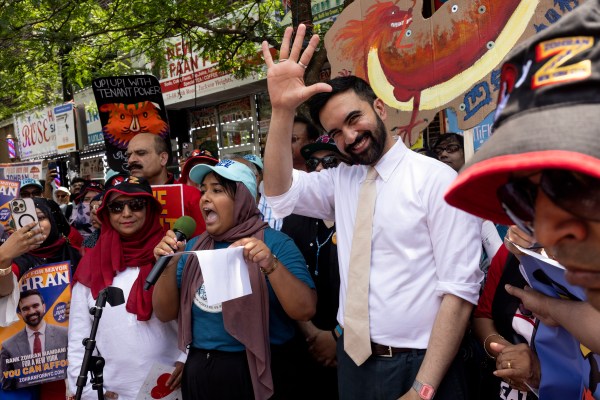
Mamdani’s Big Apple Upset

On Iran and Israel, Marjorie Taylor Greene Is the MAGA Fringe
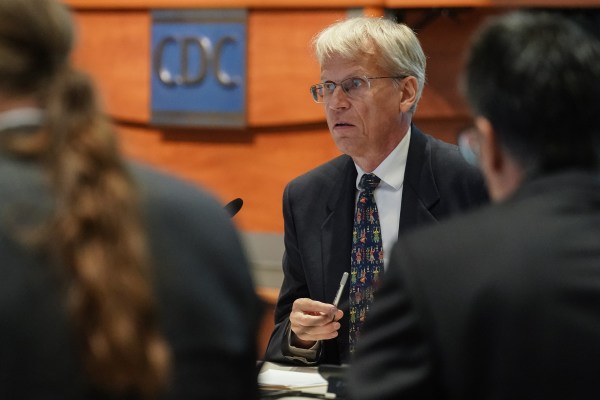
RFK Jr.’s Vaccine Panel Sleight-of-Hand
Worth Your Time
- Writing for Undark, Sarah Scoles explored the implications of a possible significant change in our current understanding of dark energy. “In the beginning, the Big Bang happened, sending everything in the universe expanding outward and apart, from a dense hot point. Since then, all that matter and energy has continued to move outward, carried along with the cosmos’ expansion. That expansion is fueled by dark energy, a mysterious force that is fundamental to scientists’ understanding of the past and future of the universe. Since dark energy’s discovery a quarter-century ago, scientists have assumed its influence to be constant, its force exerted the same way 5 billion years ago, today, and forever; a sort of steady foot on the gas pedal. But new results, from an instrument called the Dark Energy Spectroscopic Instrument, or DESI, located at the Kitt Peak National Observatory in Arizona, suggest that might not be true: Dark energy may, in fact, evolve — its influence changing over time. Data now suggest dark energy has weakened in more recent epochs, essentially lessening its pressure on the accelerator. The results potentially ‘really change your understanding of what dark energy actually is,’ said Ashley Ross, a cosmologist at The Ohio State University who is working on a project to measure how galaxies are distributed, as part of the DESI collaboration,” Scoles wrote. “Ross, along with other physicists, would actually be excited if the current model of dark energy were proven wrong, because it could help his crew think differently about the best direction for cosmology. … And the buzz about the DESI results, despite their preliminary nature, illuminate scientists’ hope that discrepancies like this could be wormholes to new ideas, and so progress.”
- As artificial intelligence continues to advance at breakneck speed, it has begun to upend the job recruiting process. Employers are inundated with thousands of AI-generated resumes, Sarah Kessler reported in the New York Times. “Katie Tanner, a human resource consultant in Utah, knew the job would be popular: It was fully remote, was at a tech company and required only three years of experience. But she was still shocked by the response on LinkedIn. After 12 hours, 400 applications had been submitted. By 24, there were 600. A few days later, there were more than 1,200, at which point she removed the post. Three months later, she’s still whittling down candidates,” Kessler wrote. “The number of applications submitted on LinkedIn has surged more than 45 percent in the past year. The platform is clocking an average of 11,000 applications per minute, and generative artificial intelligence tools are contributing to the deluge. With a simple prompt, ChatGPT, the chatbot developed by OpenAI, will insert every keyword from a job description into a résumé. Some candidates are going a step further, paying for A.I. agents that can autonomously find jobs and apply on their behalf. Recruiters say it’s getting harder to tell who is genuinely qualified or interested, and many of the résumés look suspiciously similar.”
Presented Without Comment
The Hill: NATO Chief Calls Trump ‘Daddy’ After President Drops F-Bomb
Also Presented Without Comment
Semafor: Eric Adams Suddenly Finds ‘Overwhelming Support’ From NYC’s Desperate Business Elites
In the Zeitgeist
All 10 episodes of the fourth season of The Bear dropped on Hulu last night. Will you be binge-watching the whole season this weekend? Yes, chef.
Let Us Know
Do you think Zohran Mamdani’s victory is a fluke or a bellwether?
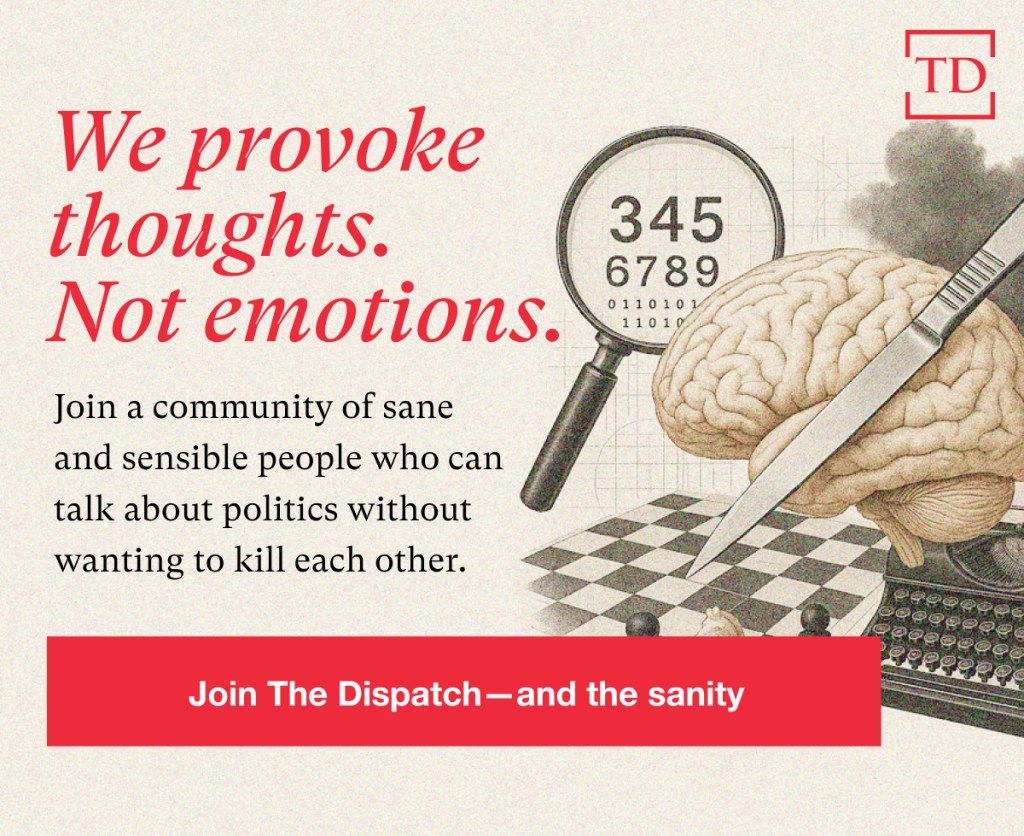



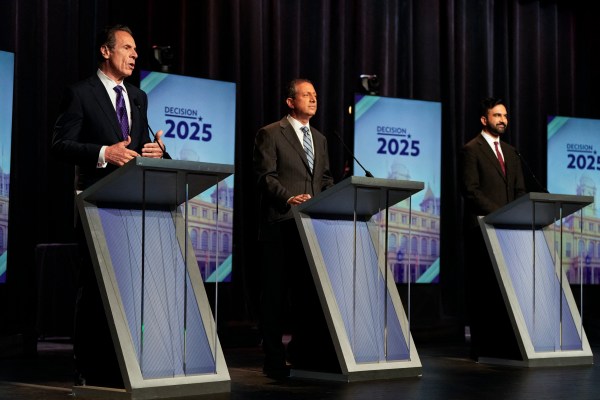
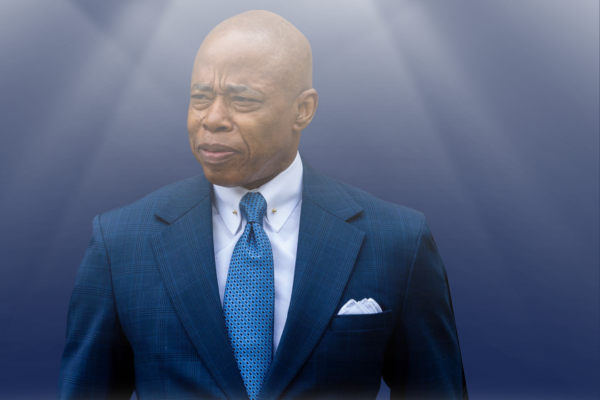
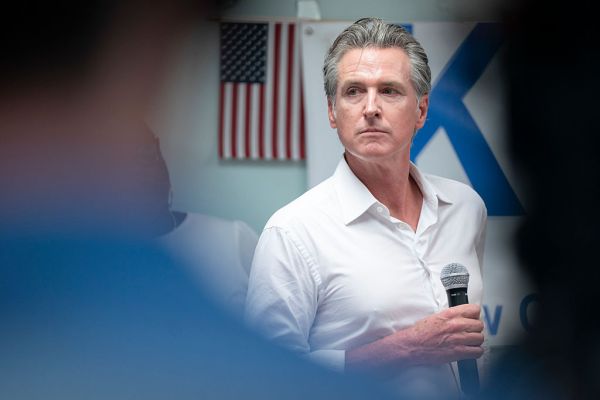


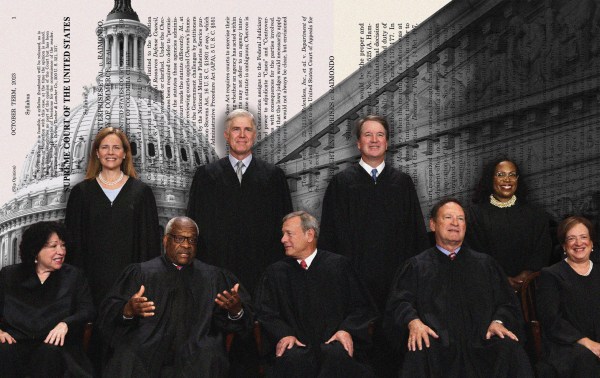

Please note that we at The Dispatch hold ourselves, our work, and our commenters to a higher standard than other places on the internet. We welcome comments that foster genuine debate or discussion—including comments critical of us or our work—but responses that include ad hominem attacks on fellow Dispatch members or are intended to stoke fear and anger may be moderated.
With your membership, you only have the ability to comment on The Morning Dispatch articles. Consider upgrading to join the conversation everywhere.